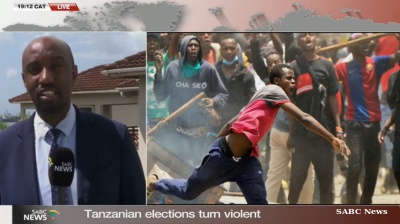Slovak President Andrej Kiska refused to appoint the cabinet proposed on March 19 by designated Prime Minister Peter Pellegrini (Smer-SD), who was appointed after a political crisis caused by the murder of journalist Jan Kuciak in February.
The main obstacle was the choice of non-partisan Jozef Raz for interior minister, since Raz is seen as a close friend of problematic ex-interior minister Robert Kalinak. After Kiska turned down his initial proposal, Pellegrini put forward a new name for this cabinet seat on the same afternoon.
Many were wondering what role Kiska would play when faced with the new government proposal. And, Kiska has decided to continue in his active role and dismiss the proposal. He then made an appeal on Pellegrini to continue his efforts to form a government, which will calm down the situation.
"A government that should be able to secure an independent and impartial investigation of the murder of Jan Kuciak and Martina Kusnirova [Kuciak’s fiancee], as well as the suspicions of organised crime the murdered journalist wrote about," Kiska elaborated.
Kiska attacked Pellegrini for choosing Raz, because of his links to Kalinak. “People are protesting because they have lost their trust and do not believe that the top positions are filled with people who sincerely protect the public interest,” Kiska told journalists.
“The last thing society needs now is lengthy discussions about who went for a motorbike ride or a celebration with whom, or other speculations about personal links. This is not the way to restore trust," Kiska added.
But, he also praised Pellegrini for his "matter-of-fact, proper and constructive approach" toward the task, calling it "a welcome change" in a clear allusion to ex-PM Robert Fico, who stepped down as the scandal over Kuciak’s death escalated.
Kiska gave Pellegrini until Friday to make new proposals, but the PM designate was quick to act.
On the same afternoon, he held a press conference where he proposed incumbent Health Minister Tomas Drucker (a Smer-SD nominee, but not a member of Smer-SD) to lead the interior ministry. The empty chair of health minister would then be taken over by current state secretary at the ministry, Andrea Kalavska.
"In order to resolve this situation, we've decided to deliver to the president tomorrow [March 21] a new proposal for the appointment of government members, which will contain several changes," Pellegrini said and added that these are the only two changes in the proposal.
“The proposal also came from our mutual consultation and Mr President is thoroughly informed about everything," he said. Pellegrini also announced the intention of Kiska to sit down with the nominees and talk with them briefly in the morning March 21, “In order to go through specific issues in the ministry he's interested in," added Pellegrini.
The next step, as listed by Pellegrini, will be the appointment of the government. "It's essential he announce the earliest possible date. I would be glad if Slovakia had a new government as early as on Friday. Slovakia can't be without a legitimate government, which has a parliamentary majority, for a few weeks or even months," Pellegrini concluded.
Coalition parties discussed the change with Pellegrini and agreed to his proposals, though Jaroslav Paska, vice-chair of the far-right Slovak National Party (SNS), hinted that early elections were a possibility. “I'm confident that Pellegrini will attempt to meet the president's demands, but for that, he needs more time. It is possible, however, that this very demand by Andrej Kiska will make the Smer-SD party choose a different solution to the current political crisis, one that could lead all the way to an early election," Paska said.
"We are not from Mars, we live in reality. Do you think the president called us and told us who the problem is? No. He declared something today and we'll have a coalition meeting [to discuss it]. If we come to a solution, we will let you know," said the leader of Smer-SD’s second coalition partner, the centrist largely ethnic Hungarian party Most-Hid, Bela Bugar.
Opposition parties welcomed Kiska’s decision. "He could have bowed his head in submission, yet he chose to continue standing by the people who yearn for a decent Slovakia. A Slovakia without the Mafia-connected to key representatives of the governing parties. A Slovakia where we would live happily," said the leader of Opposition Ordinary People (OLaNO) Igor Matovic.
"In an extraordinary situation, he has acted exceptionally. This [nomination of Jozef Raz] only proves that the Smer-SD party is empty in terms of personalities. The new interior minister should be a credible person who is viewed positively also by the public,” said the vice-chair of the rightwing Eurosceptic Freedom and Solidarity (SaS) Jana Kissova.
Despite the recent scandal surrounding government figures, the opposition is not treated well by the media or liked by many of the public. It is clear that just to allow the opposition to form a government wouldn’t be a solution to the current problems.
To some extent, even the strongest group exerting pressure on the politicians, civil society, has accepted this. President Kiska met with organisers of the For a Decent Slovakia movement, who declared that they don’t want an early election no matter what.
The For a decent Slovakia movement attracted 65,000 protestors onto the streets of Bratislava alone on March 16, approximately 15,000 people more than a week earlier and possesses significant power. The protests will continue this Friday, March 23.
"I'm delighted that there are more of us who want to see the same values in the government and in parliament, and that there aren't just people in the streets but that pressure is also being applied this way," said one of the organisers, Katarina Nagy Pazmany.
"The new person at the interior ministry mustn't be a member of any party and must provide such a guarantee that the public will believe that the ministry will be managed impartially and responsibly and that the investigation [into the murders of Kuciak and Kusnirova] will be brought to a successful end," said organiser Juraj Seling.
The situation is very complex, but early elections are, probably, working as a ‘phantom’, the worst outcome. At least for Smer-SD, this would be a disaster given their declining support in recent weeks. The battle is now about the power of the government, with an unclear and shady role for ex-PM Fico in the background.
As political scientist Darina Malova stated, "the proposal tabled by Pellegrini can be viewed as anything but a comprehensive reconstruction of the cabinet. A lot of ministers whose names are often linked with corruption still remain." Malova moreover pointed at one significant factor – the fate of Defence Minister Peter Gajdos (SNS), who has been connected to corruption. Whether the change of interior minister will be enough, is uncertain.
Another question is the timeframe. The demonstration on Friday will be an important driver of the situation, without a doubt. As political analyst Pavol Babos said, “President Kiska is continuing to utilise his constitutional powers to exert the greatest possible pressure on designated Prime Minister Peter Pellegrini. I believe that the governing coalition attempted to form the new cabinet ahead of the next round of public protests scheduled for Friday [March 23], an effort now unlikely to be crowned a success.”
News

Russia tests nuclear-powered Poseidon torpedo, Putin says
Speaking during a hospital visit with soldiers wounded in Ukraine, Putin said the device was launched from a submarine and that its onboard nuclear power unit had been successfully activated.

Serbian students march to Novi Sad for anniversary protest
Hundreds of students from across Serbia are marching on foot to the northern city of Novi Sad ahead of a November 1 commemoration marking one year since the collapse of a railway station canopy that killed 16 people.

Tanzania election protests trigger curfew; military deployed, internet cut
Demonstrators clashed with security forces in Dar es Salaam, setting a bus and a gas station ablaze, prompting authorities to impose a curfew from 6 p.m. The military was deployed in Dodoma, Zanzibar, and the commercial capital.

US strikes on drug vessels kill 14 in deadliest day of Trump's narcotics campaign
The US military killed 14 people in strikes on four vessels allegedly transporting narcotics in the eastern Pacific Ocean, marking the deadliest single day since President Donald Trump began his controversial campaign against drug trafficking.




